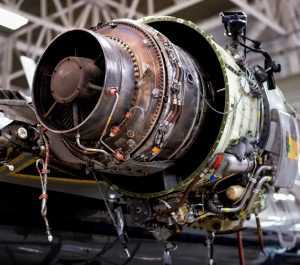
Research Topic -Structural Material
The strength of Al alloys are stiffness and strength, Corrosion resistance, High conductivity, Formability, Low-temperature properties, Recyclability. The density of Al is one-third of steel or copper and is lightest available metals. Structural material requiring increased payloads or fuel savings for transport industries use this as a suitable material. Al is a good reflector of radiant energy from ultraviolet to infrared. It has a visible light reflectivity of 80% and hence used in light fixtures and also makes Al ideal as an insulating material to shield against the sun’s rays in summer while insulating against thermal loss during winter. Al is the predominant matrix for the MMCs. The Al-alloys are appealing due to their minimal density, their capability to be enhanced by precipitation, their good corrosion resistance, high thermal, electrical conductivity, and their high damping capacity. Al matrix composites (AMCs) have been comprehensively examined since the 1920s and 18 are now utilized in sporting goods, electronic packaging, and automotive trades. They propose a sizeable variety of mechanical properties reliant on the chemical composition of the Al-matrix. The Al matrix materials in commonplace are Al-Si, Al-Cu, 2xxx, 6xxx and 7xxx alloys. With MMCs, Al-MMCs have favored engineering materials for auto, space, and ore processing trades. These trades require high-performance components that are being used for variabilities of applications due to their high elastic modulus, hardness, tensile strength at room and raised temperatures, wear resistance mutual with extensive mass savings over un-reinforced alloys and excellent thermal conductivity. The benefits of particle-reinforced composites over others are their formability with expense benefit and display improved abrasion resistance. They find applications in parts such as cylinder blocks, pistons, piston insert rings, brake disks, callipers, connecting rod, microwave filters, vibrator component, contactors, impellers, and space constructs. The strength of these composites is relational to the proportion quantity and fineness of reinforced particles. These ceramic particle reinforced Al-alloy composites have directed to a new generation custom made industrial materials with enhanced special properties. Thus the use of Al alloys as a structural material is of importance which needs to be studied.
Department & Campus
Department of Mechanical Engineering, School of Engineering, Bengaluru Campus
Skillsets Preferred from Applicants
Fundamentals in Material Science, Manufacturing Process and Testing of Materials
Faculty Profile
Ulhas K. Annigeri
Assistant Professor,
Department of Mechanical Engineering,
School of Engineering,
Amrita Vishwa Vidyapeetham, Bengaluru
Why Amrita?!
The core vision of Amrita lies in providing education for life, grounded in intellectual social responsibility through compassion driven research that will translate into a positive global impact. The Schools under the aegis of Amrita University have over 108 programmes in disciplines as diverse as Biotechnology, Engineering, Management, Medicine, Dentistry, Ayurveda, Pharmacy, Nanotechnology, Communication, Arts & Science and Education, providing our students with an outstanding training in our several campuses across multiple states. Needless to add, this multi-disciplinary character of our University facilitates a laudable synergy within our midst greatly enabling us all to derive maximum benefit from the expertise of each other.
Outstanding Faculty from India and Abroad
Industry-Aligned Curriculum
Immersive Learning Experience
Top-Ranked University
Admission Procedure
ELIGIBILITY
FULL TIME PHD
Applicants holding a Master’s degree are eligible to apply for admission. Examples of Master’s degree include: ME, M. Tech., M. Sc., MCA, MS by Research and MPhil
applicants are expected to have strong academic records.
PART TIME PHD
Applicants who have a full-time appointment at Amrita Vishwa Vidyapeetham or at another academic/ R&D organization are eligible to apply for part-time admission. Other eligibility requirements of such applicants are same as full time applicants. Part Time students are permitted to proceed at a slower pace in completing their doctoral requirements.
INTEGRATED PHD
Exceptional students pursuing a Bachelor’s or Master’s degree at Amrita will be allowed to apply for the Integrated Ph.D. program subject to the requirement that he or she completes all the requirements of the Bachelor’s or Master’s degree prior to ‘advancement to candidacy’
DUAL DEGREE PHD
Exceptional students who satisfy the eligibility requirements of Amrita and that of Amrita’s International Partner University (IPU), as stated in the Dual PhD. MoU signed between Amrita and the IPU, are eligible for admission to the Dual PhD program.

Fee Structure
|
TUITION FEES (Per Annum) External Scholars |
TUITION FEES (Per Annum) Internal Scholars |
|
| AMRITAPURI | ₹30,000 | ₹20,000 |
| COIMBATORE | ₹30,000 | ₹20,000 |
| BENGALURU | ₹30,000 | ₹20,000 |
| CHENNAI | ₹30,000 | ₹20,000 |
Admission
Doctoral programs at Amrita Vishwa Vidyapeetham are designed to develop outstanding educational researchers with a wide range of research skills as well as in-depth knowledge and practical understanding and expertise in their chosen field of educational research.

We Facilitate Your Education
At Amrita, students work closely with the faculty who become their mentors, advisors and friends. Our faculty aims to provide holistic education to students, strives to structure their skills, helping them to reflect on real-world issues by thinking critically, allowing them to channelize their skills to be used in real life scenarios, by giving them optimal industrial and academic exposure.

Important Links
PhD Telegram Group
By joining the official Amrita Telegram group, we can provide you quick details on interview dates, programs, admission procedures, departments, student achievements, career advice, research, and the scholarship program.
Email: phd@amrita.edu

